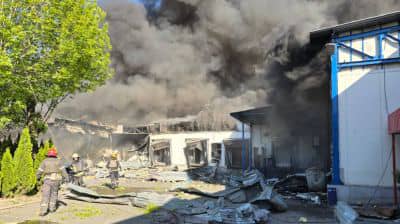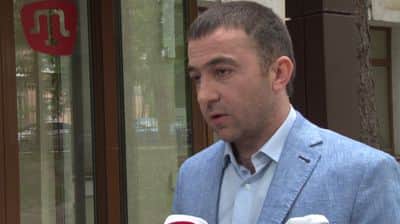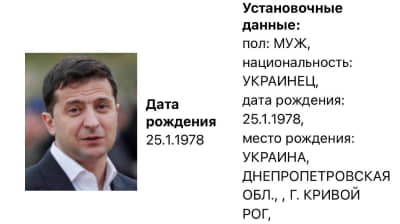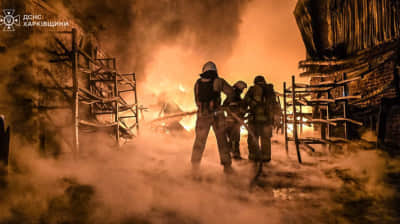Ukraine's Defence Forces need to coordinate ATACMS strikes with ground operations – ISW
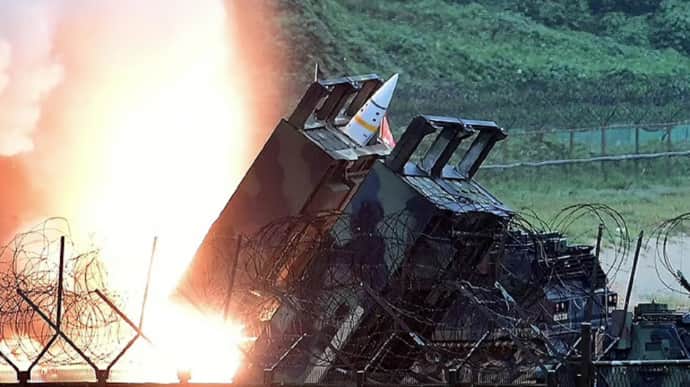
The Institute for the Study of War (ISW) experts believe that the ATACMS provided to Ukraine by the United States could weaken Russian logistics and pose a threat with strikes on Russian airfields and warehouses. However, they will have operational significance for Ukraine, provided these strikes are reinforced by ground operations by the Defence Forces.
Source: ISW
Details: US President Joe Biden announced on 24 April that the US would begin sending military equipment to Ukraine "in the next few hours" after signing a bill that provides Ukraine with assistance totalling about US$60 billion.
Biden signed the law on additional allocations for Ukraine on 24 April, after the US Senate approved it on the evening of 23 April, and the US House of Representatives passed it on 20 April. Biden emphasised the need to provide military assistance to Ukraine as soon as possible.
The Pentagon announced that the first tranche of American military aid, as stipulated by this bill, amounts to US$1 billion.
Analysts note that American security assistance may arrive on the front lines in Ukraine over the next few weeks, sooner than the Russians expected.
Quote: "The battlefield situation will continue to degrade until Ukrainian forces can receive and use enough military equipment at scale, however, and Ukrainian forces may still struggle to defend against Russian efforts near Chasiv Yar and northwest of Avdiivka in the near term," the review reads.
Experts emphasise that the arrival of long-range ATACMS missiles in sufficient quantities will allow Ukrainian forces to weaken Russian logistics and threaten Russian airfields deep in the rear. However, months of delay may have given Russian military forces time to mitigate potential operational consequences that ATACMS missiles could provide to Ukraine.
Furthermore, the presence of long-range ATACMS missiles could also pose a significant threat to Russian ammunition depots in rear areas and force the Russian command to choose between fortifying existing depots and further dispersing them throughout the occupied territory of Ukraine.
Russian forces may have already adapted to potential new Ukrainian strike capabilities following the use of ATACMS in October 2023, although it remains unclear whether the occupiers' ammunition depots are sufficiently fortified or dispersed.
The review reiterates that the arrival of HIMARS systems in Ukraine in June 2022 allowed Ukrainian forces to conduct an operationally significant campaign to intercept in support of counteroffensive operations in the Kherson and Kharkiv oblasts, forcing Russian command to expand Russian logistics along longer ground communication lines, thereby complicating Russian supplies of ammunition and materials.
Considering this, experts point out that Ukrainian strikes on Russian logistics targets or Russian aviation in the deep rear are likely to have operational significance, but only if Ukrainian forces successfully coordinate them with ground operations to exploit the weakened Russian capabilities resulting from the strikes.
To quote the ISW’s Key Takeaways on 24 April:
- US President Joe Biden announced on 24 April that the US will begin sending military equipment to Ukraine "a few hours" after signing a bill that will provide roughly US$60 billion of assistance to Ukraine.
- The United States reportedly provided an unspecified number of long-range ATACMS missiles to Ukraine in March 2024, some of which Ukraine has already used to strike Russian targets in deep rear areas.
- The arrival of long-range ATACMS missiles in sufficient quantities will allow Ukrainian forces to degrade Russian logistics and threaten Russian airfields in deep rear areas, although months of delay may have provided the Russian military time to offset the potential operational impacts that ATACMS will afford Ukraine.
- Ukrainian forces reportedly conducted successful drone strikes against Russian energy and industrial facilities in Smolensk and Lipetsk oblasts on the night of 23-24 April.
- Russian authorities arrested Deputy Defence Minister Timur Ivanov on 24 April on charges of accepting bribes, although other Russian sources reported that Ivanov is suspected of treason.
- Ivanov’s arrest prompted Russian information space speculation about a new round of personnel changes in the Russian military and claims that the arrest is part of Kremlin factional conflicts.
- Russian ultranationalist milbloggers largely celebrated Ivanov’s arrest and used it as an opportunity to publicly criticize the Russian MoD.
- The Kremlin explicitly threatened Armenia if Armenia does not resume active engagement in the Russian-led Collective Security Treaty Organization (CSTO) and resume its pro-Kremlin alignment.
- Kremlin-appointed Children’s Rights Commissioner Maria Lvova-Belova deliberately misrepresented recent Qatari-mediated negotiations between Russia and Ukraine as the first face-to-face negotiations on the return of Ukrainian children forcibly removed and deported by Russia, likely in an effort to minimise Russia’s responsibility for the coordinated removal and deportation of Ukrainian children.
- Moldovan authorities filed a criminal case against Yevgenia Gutsul, the Kremlin-affiliated governor of the pro-Russian Moldovan autonomous region of Gagauzia, for campaign finance violations as Moldovan officials continue to warn about Russia’s threat to Moldova.
- Russian forces recently marginally advanced near Avdiivka, Donetsk City, and Robotyne.
- Russian State Duma Committee on Information Policy Head Alexander Khinshtein stated on 24 April that unspecified Russian officials will soon submit a draft law to the State Duma that would ban the extradition of foreigners who have fought in Russia’s full-scale invasion of Ukraine if the foreigners face prosecution for their military service in their home countries.
Support UP or become our patron!


